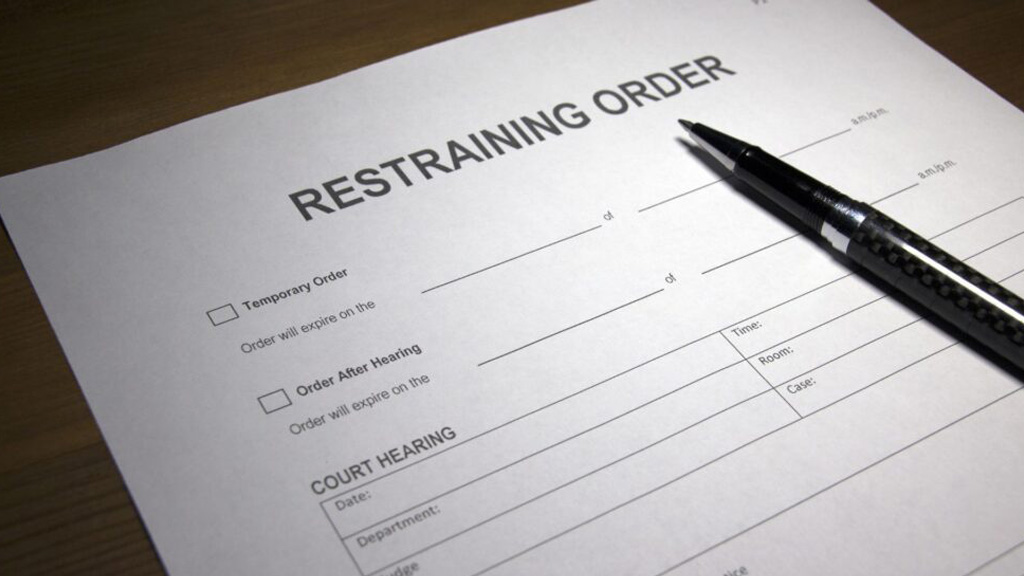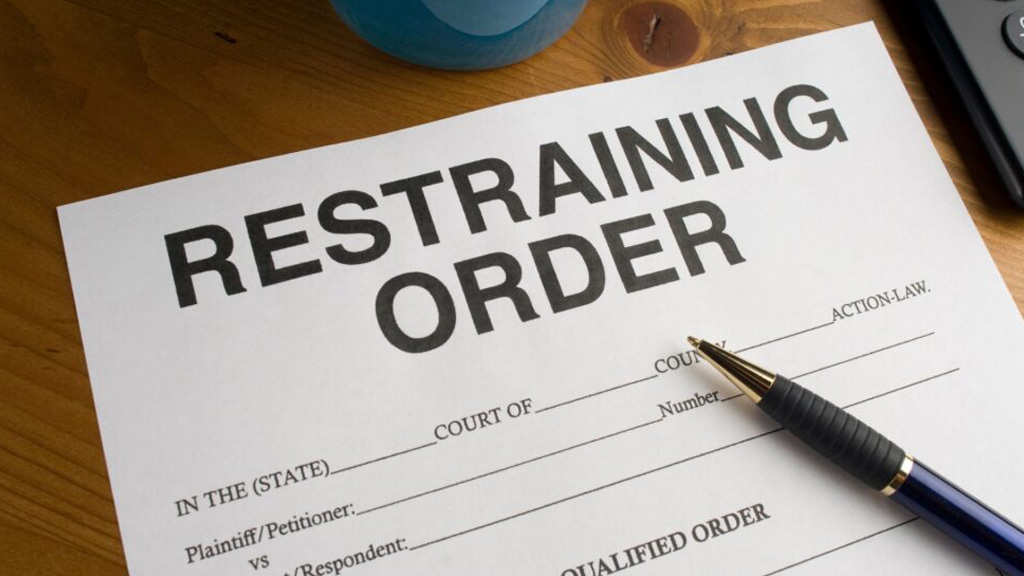Restraining Orders
Vista Domestic Abuse Attorney

Generally, there are two types of Family Law Restraining Order. There are temporary restraining orders, which are in effect from the time the Court issues the Family Law Restraining Order until a hearing is held for the Court to determine whether or not they are going to grant a permanent Family Law Restraining Order. It is not uncommon for the temporary restraining order to be extended if the court hearing is continued to a later date, often at the request of the person who obtained the order. The temporary restraining order prohibits the restrained person from doing certain acts and may preclude them from seeing their child(ren) , spouse, animal(s), and/or other family members.
The second type of Family Law Restraining Order is a permanent restraining order. A permanent Family Law Restraining Order lasts longer. Even though it’s called “permanent,” it doesn’t last forever. The permanent Family Law Restraining Order is issued for a set period of time, usually one to five years.
Often called a “kick out order”, a “residence exclusion order” bars the abusive spouse/person access to the home they live in if they live with the person who filed the restraining order. The person restrained from the house must not return to the house unless the restraining order is no longer valid.
Other relief that you can seek with a restraining order, with the help of an Oceanside family lawyer, may include one or more of the following, or the Court may make other orders that it determines are necessary and proper given the facts of the case.
- A stay-away order requiring the alleged abuser to stay away from a home, school, place of employment, place of worship, etc of a protected person(s).
- An order that the restrained person not go within a certain distance from the person or people named in the restraining order.
- The temporary restraining orders may include orders that restraining person may not contact the protected person(s) by phone, by text message, or by email, or otherwise contact a person throughanother person (3rd party).
- The temporary restraining orders may include orders that affect a person’s right to child custody or child visitation.
- An order that the restrained person not go within a certain distance from the person or people named in the restraining order.
- An order that the restrained person not go within a certain distance from the person or people named in the restraining order.
Temporary Family Law Restraining Orders may be obtained by an ex parte hearing (usually within 48 hours) or a regular noticed motion.
What Is Domestic Violence?
Domestic violence does not require physical contact.
In order to qualify as “domestic,” the abused and the abuser must be or have been in an intimate relationship (married or domestic partners, are dating or used to date, live or lived together, or have a child together), or be closely related by blood or by marriage.
The domestic violence laws say “abuse” is:
- Physically hurting or trying to hurt someone, intentionally or recklessly;
- Sexual assault;
- Making someone reasonably afraid that they or someone else are about to be seriously hurt (like threats or promises to harm someone); or
- Behavior like harassing, stalking, threatening, or hitting someone; disturbing someone’s peace; or destroying someone’s personal property.
The abuse in domestic violence does not have to be physical. Abuse can be verbal (spoken), emotional, or psychological. You do not have to be physically hit to be abused to obtain a restraining order.
If you are being abused in any of these ways or you feel afraid or controlled by your partner or someone you are close with, please give me a call at Paula D. Kleinman, A Professional Law Corporation.
If you have been wrongfully accused of domestic violence and there already is family law restraining order please give me a call at Paula D. Kleinman, A Professional Law Corporation. DO NOT allow a restraining order to be placed on you. Some people say, well I don’t want to see him/her again so I don’t care if there is a restraining order against me.” But you should care, because permanent family Law restraining orders are entered into the California Law Enforcement Telecommunications Systems (CLETS) and allow statewide or national access. In addition, if you have a permanent family law restraining order against you, it could affect your employment, and your right to own or possess firearms, among other things.
What Do I Do?

Paula Kleinman will assist you through this emotional time either by obtaining a Restraining Order for you or defending you against a Restraining Order. Whether you’re the abused or the accused abuser, male or female, I can help guide you through the court system and help keep you safe, both from the type of abuse that we call “domestic violence” and from those who use false accusations of domestic violence to manipulate the system to gain a tactical advantage in a divorce or custody case. Either way, you need someone at your side to protect your rights, and maybe even your life or livelihood. If you’re suffering from domestic violence or have been threatened with or served a Temporary Restraining Order, call my office today for a consultation.
Request A Free Consultation
Fields marked with an * are required


